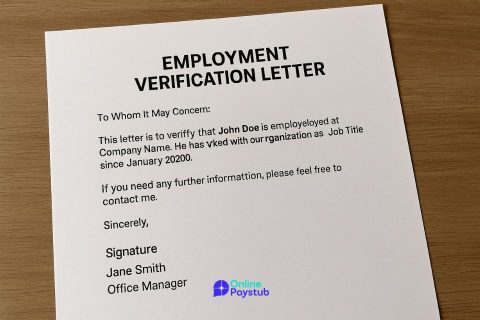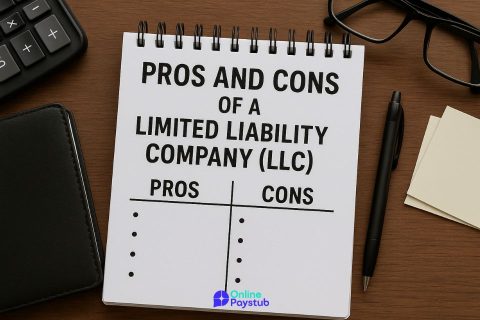Summary
Employment contracts are legally binding agreements outlining job terms between employers and employees. Types include written, verbal, and implied contracts, with variations like permanent, fixed-term, part-time, casual, and temporary agreements. Specialized arrangements cover freelance (1099), consultancy, internships, executive roles, unionized positions, and remote work. Each contract type offers different levels of security, flexibility, and benefits. Understanding these options helps both parties set clear expectations, maintain compliance, and build productive work relationships.
Employment contracts are more than just paperwork they’re the legal foundation of any working relationship. Understanding the various types of employment contracts can help both employers and employees make informed decisions that protect their rights and clarify expectations from day one.
What Is an Employment Contract?
An employment contract is a legally binding agreement between an employer and an employee that outlines the terms and conditions of employment. This document typically includes job responsibilities, salary, benefits, working hours, duration of employment, and grounds for termination. Whether in writing or verbally agreed upon, it serves as a reference point for resolving any disputes or misunderstandings that may arise during the course of employment.

Why Employment Contracts Are Essential
Employment contracts establish clear boundaries and expectations, ensuring both parties understand their rights and obligations. For employers, contracts help minimize legal risks and protect confidential business information. For employees, these agreements provide job security, transparency, and a solid understanding of what they are entitled to—such as pay, leave, and notice periods.
Written, Verbal, and Implied Contracts
- Written Contracts are the most formal and detailed type of employment agreement. They are documented, signed by both parties, and include all essential terms like pay, duties, and termination clauses.
- Verbal Contracts are agreements made through spoken communication. Though legally valid, they are difficult to enforce due to lack of documentation and clarity.
- Implied Contracts arise from actions, conduct, or circumstances that suggest a mutual agreement exists. For example, continued employment and regular pay can imply an ongoing contract even without a formal document.
Understanding these types helps determine how secure and enforceable an employment relationship really is.
Permanent Employment Contracts: Stability and Security
Permanent contracts are the most common type of employment agreement. They do not have a set end date and provide long-term job security for employees. These contracts often come with full benefits, including health insurance, retirement plans, paid leave, and regular working hours. For employers, this type of contract fosters loyalty and a stable workforce. For employees, it offers peace of mind and long-term career planning opportunities.
Fixed-Term Employment Contracts: Defined Duration
A fixed-term contract is set for a specific period, often used for seasonal work, special projects, or covering maternity leaves. It clearly defines a start and end date, and the employee is usually not entitled to permanent status unless the contract is renewed multiple times. While it offers structure and predictability for employers, employees may view it as a stepping stone or temporary placement.
Part-Time Employment Contracts: Flexibility with Fewer Hours
Part-time contracts specify fewer working hours than full-time arrangements, typically less than 30–35 hours per week. These contracts offer flexibility for both employers and employees—ideal for students, caregivers, or semi-retirees. While part-time workers may receive fewer benefits, the arrangement suits individuals seeking work-life balance or supplemental income.
Casual Employment Contracts: On-Demand Work
Casual contracts are often used when work is irregular or unpredictable. Employees work as needed and may not have guaranteed hours. This type of arrangement is common in hospitality, retail, or event staffing. While casual workers usually receive a higher hourly rate to offset the lack of benefits, the trade-off is reduced job security.
Temporary Employment Contracts: Short-Term Solutions
Temporary contracts are typically facilitated through staffing agencies or used directly by companies to cover peak seasons or specific needs. These agreements are similar to fixed-term contracts but often span a shorter duration and are more task-specific. They provide businesses with workforce agility while offering workers fast entry into the job market.
Freelance and 1099 Contracts: Independent Work Arrangements
Freelancers and independent contractors work under 1099 agreements rather than traditional employment contracts. They are not classified as employees, meaning they are responsible for their own taxes and benefits. These contracts are project-based and allow for a high degree of independence. Freelancers enjoy flexible schedules and client variety, but lack job security and benefits typically offered to employees.
Consultancy Agreements: Expert Support on Demand
Consultancy agreements are used when businesses require specialized expertise for a specific project or strategic advice. Consultants are not considered employees and typically operate independently. These contracts outline the scope of work, timeline, deliverables, and
payment terms. They are ideal for short-term, high-impact engagements where in-house resources or skills are lacking.
Internship and Apprenticeship Contracts: Learning-Based Engagements
Internships and apprenticeships focus on training and skill development. Intern contracts are often short-term and may be unpaid or paid, depending on jurisdiction and industry. Apprenticeships, on the other hand, are more formal, often combining education with hands-on work under a skilled mentor. These contracts outline learning goals, duration, compensation, and responsibilities, offering mutual benefit to both trainee and employer.
Executive Contracts: High-Level, High-Detail Employment Terms
Executive contracts are tailored for senior management and high-ranking company officials. These agreements often include detailed terms around compensation packages, performance bonuses, stock options, severance clauses, and confidentiality or non-compete agreements. Given the strategic impact of executive roles, these contracts are often negotiated carefully with legal oversight to protect both parties.
Union Contracts: Rights and Protections Through Representation
Also known as collective bargaining agreements, union contracts are negotiated between employers and employee unions. They establish standardized terms regarding wages, working conditions, hours, benefits, grievance procedures, and job security. These agreements ensure that workers receive consistent treatment and have formal channels for dispute resolution, backed by legal enforcement.
Remote Work Agreements: Adapting to Modern Workforces
With the rise of flexible work models, remote work agreements define the terms under which employees can work outside a traditional office. These contracts specify expectations around work hours, communication tools, data security, equipment usage, and performance tracking. Remote agreements are crucial for maintaining productivity and accountability in distributed teams, while also supporting employee autonomy.




No comments to show.